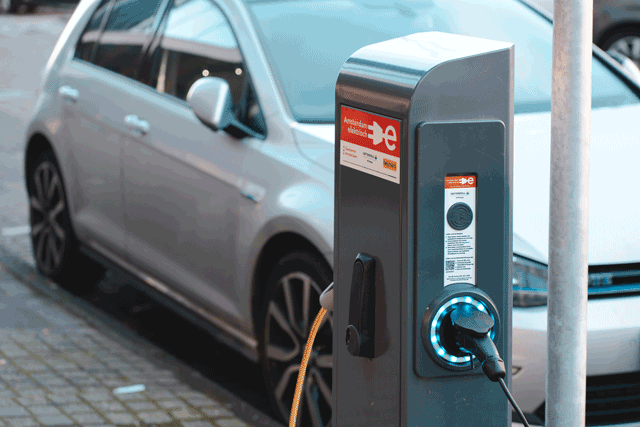By Sylvia Morna Freitas – Dec 11,2022

Representative image (Photo courtesy of unsplash/Ernest Ojeh)
AMMAN — Since the implementation of the National Green Growth Plan (NGGP) in 2016, Jordan has scaled up its use of electric vehicles (EVs) in both the public and private sectors in order to encourage green and sustainable growth, improve air quality in cities and achieve the climate goals laid out in the 2016 Paris Climate Agreement, according to authorities.
Spokesperson for the Greater Amman Municipality (GAM) Naser Rahamneh told The Jordan Times that GAM “launched the Amman Plan to confront the Effects of Climate Change in June 2019”. The plan’s objective is to reach carbon neutrality in Amman by 2050, and thereby uphold the government’s commitments in the 2016 Paris Climate Agreement.
According to Rahamneh, one of the initial successes of this project was the introduction of 100 electric vehicles to GAM’s fleet. GAM aims to replace its entire fleet to “help reduce gas emissions from transportation, pollution and damage to the environment, in addition to reducing the high costs associated with importing fossil fuels”, he said.
Despite this initial progress, a lack of cohesion and clarity surrounding EV laws, fiscal disincentives for private owners and missing EV infrastructure threatens to stall Jordan’s transition from gas-fuelled cars to EVs, according to Mohammad Eyadat, chairman of the National Centre for Environmental Justice (NCEJ).
Speaking with The Jordan Times, Eyadat elaborated on how the difference in laws between the public and private sectors creates cost-prohibitive barriers for people trying to purchase electric vehicles.
Those in the public sector, like GAM and the Ministry of the Environment, are able to purchase EV cars tax-free and without fees, making it an affordable and attractive option. However, individuals in the private sector are subject to taxes and fees that raise the price “26 per cent for a normal person” from the original price, Eyadat said.
Recent surges in gas prices and advances in electric vehicle technology have made EVs more affordable than gas-fuelled vehicles, Eydat noted.
However, the addition of these “out-of-pocket costs” for normal, private sector buyers makes electric cars more expensive than their gas-fuelled counterparts. This slows the penetration of electric cars into the vehicle market and props up the sales of gas-fuelled cars, according to the NCEJ chairman.
In order to realise sustainable and green growth of EVs in Jordan, there must be “one set of laws for everyone”, increased government incentives for people to purchase EVs and an adequate number of charging stations to make owning EVs realistic, Eyadat said.
Currently, public charging stations are only available in select areas of Amman, making it necessary for private EV owners to install charging stations in their own homes. This requirement greatly increases the bill for EV owners and discourages private owners from transitioning from gas to electric, he added.
Despite these pressing obstacles, there are encouraging signs that Jordan has taken steps in the right direction. Spokesperson for the Ministry of Environment Ahmad Obeidat, told The Jordan Times that “the number of electric cars reached 45,134, while the number of hybrid cars reached 25,177 spread between the private and public sectors”.
Additionally, the Jordan Free Zone Investor Commission reported that “clearance rates for electric cars have increased by roughly 250 per cent” since 2021 and “gasoline cars’ clearance rates dropped by roughly 15 per cent”.
Eyadat said that achieving large-scale electric vehicle usage in Jordan is about more than just saving money on gas; it’s also a moral obligation.
https://jordantimes.com/news/local/long-road-ahead-personal-electric-vehicle-ownership
